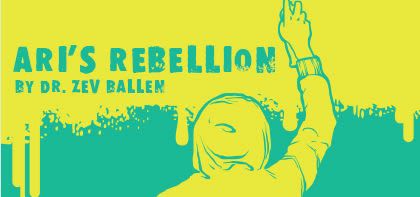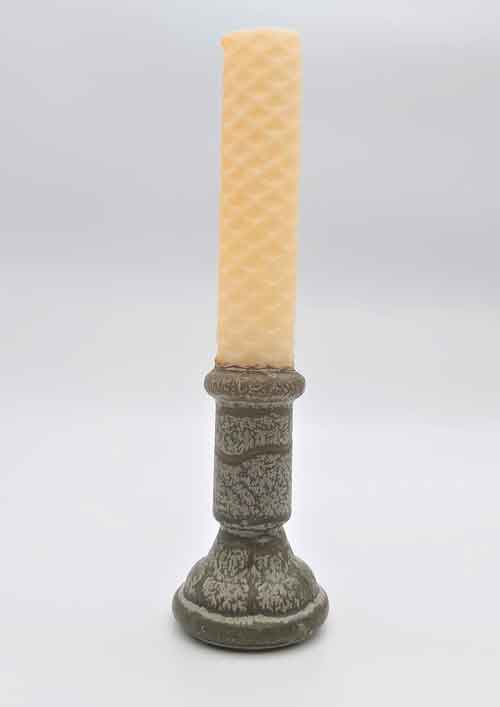
Ari’s Rebellion
Desperate to feel some personal significance and fulfillment in his life, Ari dropped out of yeshiva and began to explore the "world" outside of Hashem and his Torah...

Ari Friedman was fed up with thinking he was dumb and couldn’t learn…he was fed up with being taunted by his peers… He was fed up of his parent’s constant fighting. Desperate to feel some personal significance and fulfillment in his life, Ari dropped out of yeshiva and began to explore the “world” outside of Hashem and his Torah.
The first time Ari broke Shabbat to smoke a cigarette and watch a movie on his phone he felt surge of “power” and “revitalization.” To him, his act of rebellion felt as if he had triumphed over his parents and over G-d.
Years of pent up anger towards his parents and Torah Judaism broke through Ari’s compliant veneer. Mr. and Mrs. Freidman felt powerless as they watched their son systematically discard every religious devotion that he was raised to perform. He stopped putting on tefillin and praying. He ate food that wasn’t kosher. He stopped washing his hands and saying blessings. He stopped going to synagogue. He cut off his side curls, and wore torn jeans and an ear ring instead. He cursed his parents and spoke inappropriately to his younger brother  and sister. He openly violated the Shabbat in front of his family, in effect, tainting the spirit of the day for his whole family. He stayed out all night and slept all day. He came home intoxicated and slammed doors and cabinets when his family were trying to sleep. His room reflected the chaos that had infected him. He brought home unsavory friends. He started smoking and driving a motorcycle. He stopped helping his parents and refused to clean up after himself. But even more alarming than the external manifestations of his moral decline, was the deterioration of Ari’s soul.
and sister. He openly violated the Shabbat in front of his family, in effect, tainting the spirit of the day for his whole family. He stayed out all night and slept all day. He came home intoxicated and slammed doors and cabinets when his family were trying to sleep. His room reflected the chaos that had infected him. He brought home unsavory friends. He started smoking and driving a motorcycle. He stopped helping his parents and refused to clean up after himself. But even more alarming than the external manifestations of his moral decline, was the deterioration of Ari’s soul.
Ari began to mock the ways of the Torah and to sympathize with people who were attacking Israel and a Torah way of life. He couldn’t bear to hear about anything that was holy. He totally immersed himself in music that was filled with spiritual impurity in order to block out Hashem.
At first, Ari’s parents fought back. They also felt resentful and angry toward their son. But their yelling and sermonizing only put more distance between them and Ari. When the Freidmans understood that they were in danger of losing their son completely, their anger abated and they stopped showing disapproval of their son’s behavior. Mr. Freidman, who was the primary target of Ari’s rage, made a 180 degree turnaround. He started to show Ari more love and attention than he ever had before.
Alas – Ari’s condition only worsened…
He started hitting his siblings and pushing his parents when he got angry. Even after three therapists and two anti-depressants, Ari was still out of control.
The Freidmans had reached their moment of truth. They had exhausted everything that they knew about child rearing and were receptive to a new approach. They were shocked when they were advised to stop all of their efforts to change their son and change themselves instead – but they took this advice to heart.
Mr. and Mrs. Freidman learned that Ari was acting out the anger and resentment that Mrs. Friedman felt towards her husband and his self-centered form of Torah observance. Mrs. Freidman felt that a religious lifestyle had robbed her of the love and attention that she needed from her husband. It didn’t help Mrs. Freidman to be married to a Torah scholar who completely ignored her needs. She wanted a real partner to enjoy life with. Mrs. Friedman rebelled against her husband’s cold treatment by slacking off on her own religious observances.
Ari grew up hating his father for making his mother feel sad, lonely and like she wasn’t enough. Hashem used Ari as a mirror to show Mr. Freidman that the only way that Ari would accept his love again would be if Mr. Friedman showed more love to his wife. Hashem also used Ari as a mirror to show his mother that if she wanted her son to return to Torah observance, that she needed to strengthen her own observance; and instead of rebelling against her husband, Mrs. Friedman needed to communicate with her husband.
Mr. and Mrs. Friedman worked on themselves in earnest and the more they did, the more they saw an improvements in Ari’s condition. Mr. Friedman became less self-occupied and started “reading between the lines” with his wife. He helped his wife without her having to beg for it or demand it. Mrs. Freidman’s loneliness dissipated, and she felt loved and cared for by her husband for the first time in their marriage; in turn she tightened up on her own religious observance. It wasn’t too late – with strengthened emuna, Mrs. Freidman became a more authentic role model to impart real Torah values to her adolescent son. She became able to speak to Ari more convincingly about the Torah, and Mr. Freidman was able to stop his lectures which had only put Ari to sleep.
Ari saw that instead of preaching to him, his father was using the Torah to make his mother more happy and fulfilled. He also saw his mother enjoying Judaism, for the first time, instead of doing the mitzvot in a begrudging manner. As a result, Ari’s anger abated, especially towards his father.
Mr. Freidman started looking for his son’s good nature and did his best to tune out everything else. Ari, in turn, saw more of his father’s unconditional love and commitment to their relationship. Ari sees his mother’s religious devotions as more sincere; and with Ari’s renewed respect for his mother’s spiritual growth, Mrs. Freidman has been able to set more appropriate limits on Ari’s behavior toward her and the other children.
Ari is on his way back. He is now working and studying for his GED. He has a part-time Torah study partner and is trying to improve his observance of Shabbat. His yelling and hitting have stopped and his mood is improved. He rarely stays out late and no longer comes homes intoxicated. He still has a way to go, but he is occasionally participating in religious devotions and is able to speak about Hashem.
By far the greatest prognostic indicator for Ari’s future as a fully observant Jew, is that his parents are showering him with love and still believe in his goodness; Ari’s parents have emuna that since this is the path that Hashem has chosen for them and their son, it certainly is for the best.











Tell us what you think!
Thank you for your comment!
It will be published after approval by the Editor.